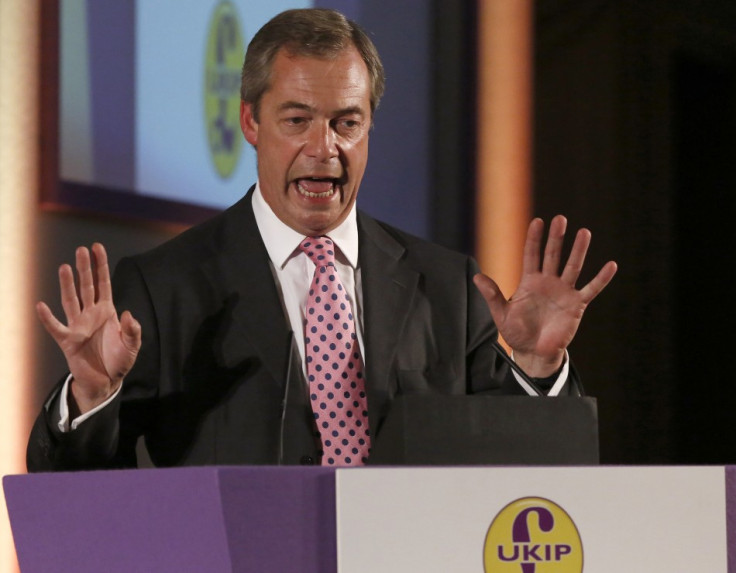Ukip Leader Nigel Farage Would Rather 'Bottle It' Over Newark By-election Than Lose

Ignore whatever Nigel Farage says publicly about why he decided not to stand in the Newark by-election. His decision was a simple and entirely sensible one – he would lose, and probably badly.
As former Tory chancellor Ken Clarke said, Farage may be many things, and he has been called most of them at one time or another, but he is not stupid.
And as Farage himself reportedly and accurately claimed in private, if he stood and lost, the Ukip bubble would very likely burst. And it would burst with a whimper rather than a bang.
In one way, the seat vacated by disgraced Tory Patrick Mercer should have appealed to Farage. Like the Basingstoke seat held by former culture secretary Maria Miller, the sitting Tory MP has become a poster boy for Tory sleaze. The anti-politics vote may well be high.
But, also like Basingstoke, Newark is a solid Tory constituency with a majority of 16,000 (Basingstoke has a 13,000 Tory majority) and it would take a bit more than simple anti-politics sentiment to defeat the Tories in a Westminster rather than Euro parliament seat.
Farage knows that, if he is to get into parliament in 2015, he needs a seat with a flimsy majority with, if at all possible, the added icing of a dodgy sitting or recently-ousted MP.
So his calculation was quite simply that he would rather weather the inevitable taunts that he has "bottled it" in order to live to fight another day. A few jibes about being "frit", to borrow Margaret Thatcher's famous taunt, are unlikely to bother him.

After all, non-stick Nigel appears entirely immune to attacks, for the moment. The almost daily revelations about the racist, unpleasant or even downright demented antics of Ukip members, not to mention his own finances, have done nothing to dent his apparent popularity.
But that is probably because a large number of those people expressing support for Ukip are not doing it because they support his policies, even the few which have been announced, but because they want to stick it to the traditional Westminster parties who they believe have let them down.
And there is no better, or safer, way to send such a message than via the EU elections which most voters otherwise do not care a jot about.
So it is far better for Farage to duck a difficult contest than face the likelihood of being roundly rejected in a by-election, which is quite likely to come days after the EU poll in which he is hoping to score some real gains.
To create that "earthquake" in the EU elections only to be defeated shortly after would be the worst possible outcome for Farage.
It would underpin the belief already widely held, and routinely supported by the polls, that Ukip has become the bucket for protest votes and, when people look at creating a government, its support will largely evaporate.
Meanwhile, there are plenty of MPs on all sides in Westminster who are urging their leaders to hold their nerve in the face of the Ukip assault, believing the best disinfectant against Ukip would be for it to win a parliamentary seat or two in 2015.
They point to the way extremist parties like the far-right BNP and National Front have been kicked out of local councils after initially securing seats which meant the reality of their policies and competence were exposed to proper scrutiny.
Similarly it is worth looking at other parties or individuals, such as the Greens or George Galloway, to see the effect Westminster has on them. They get swallowed up.
Even the SDP, created after a Labour breakaway in the 1980s and boasting some heavyweight, big beast politicians, failed to break through and were eventually merged into the Liberal party.
This may add weight to the demands for a change in the voting system for Westminster to give minority parties like Ukip a more proportional representation, just as happens in the European parliament.
But, thanks to the Liberal Democrat led referendum on just that issue in 2011, voters have rejected such a reform by a whopping 68% to 32%.
© Copyright IBTimes 2024. All rights reserved.






